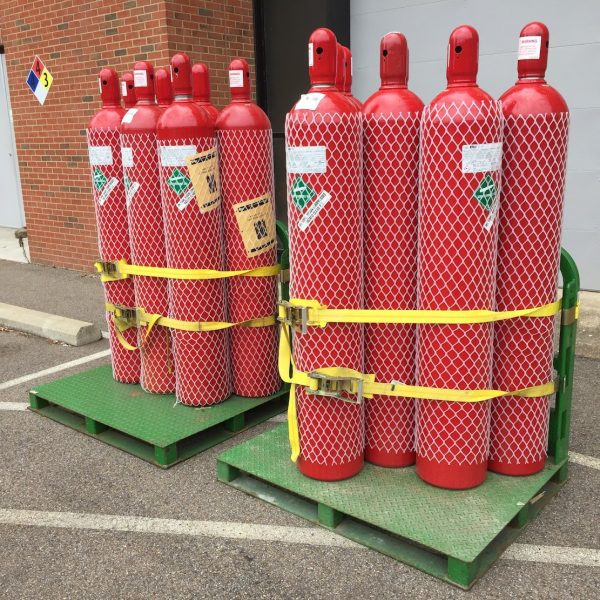Argon is a colorless, odorless, and non-reactive gas that makes up about 1% of the Earth’s atmosphere. It is widely used in various industries due to its unique properties, which include high thermal conductivity, low chemical reactivity, and a low boiling point. Here are some of the major applications of argon in industry:

- Welding and metal fabrication: Argon is commonly used as a shielding gas during welding and metal fabrication processes. The gas is inert, which means it does not react with the molten metal, thus protecting it from contamination by the surrounding air. Argon is particularly useful for welding reactive metals such as titanium, zirconium, and molybdenum, which are prone to oxidation and other forms of contamination.
- Electronics: Argon is used in the electronics industry to create a controlled environment for the manufacture of semiconductor devices. In particular, it is used in the process of plasma etching, which involves the removal of layers of material from the surface of a silicon wafer. The use of argon in this process helps to prevent unwanted chemical reactions and ensure that the etching process proceeds in a controlled and predictable manner.
- Lighting: Argon is used in a variety of lighting applications, including fluorescent lights, neon lights, and high-intensity discharge lamps. In these applications, argon is used to create a plasma that emits light when an electric current is passed through it. The use of argon in lighting applications helps to increase the efficiency and lifespan of the lamps, as well as improve the quality of the light emitted.
- Food and beverage industry: Argon is used in the food and beverage industry to prevent spoilage and extend the shelf life of products such as wine, beer, and fruit juice. The gas is used to create a controlled atmosphere in storage containers, which helps to prevent the growth of bacteria and other microorganisms that can cause spoilage.
- Medical industry: Argon is used in the medical industry in a variety of applications, including cryosurgery, where it is used to freeze and destroy cancerous tissue, and as a surgical tool for the treatment of retinal detachment. In addition, argon is used as a tracer gas to detect leaks in medical equipment such as anesthesia machines and ventilators.
